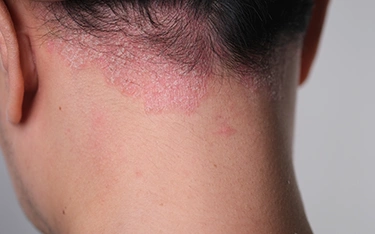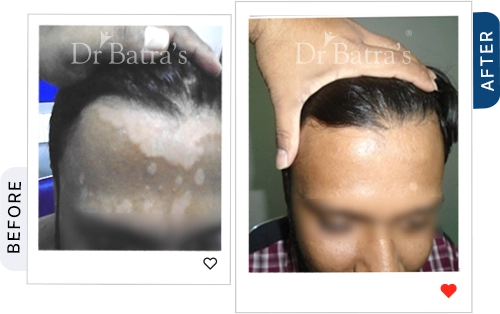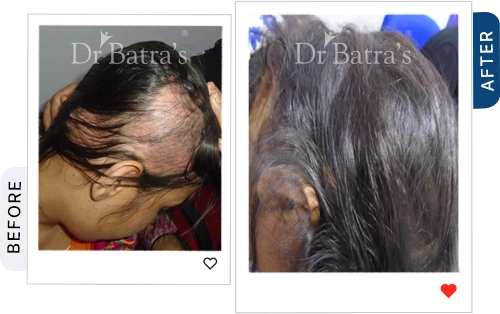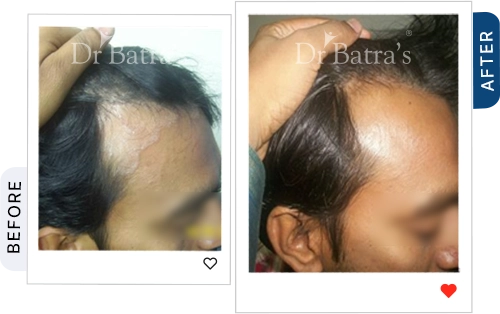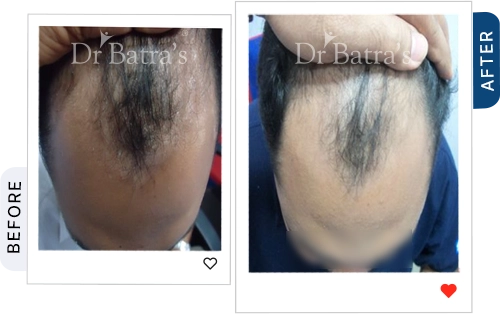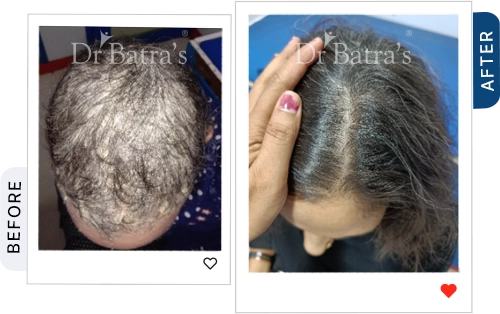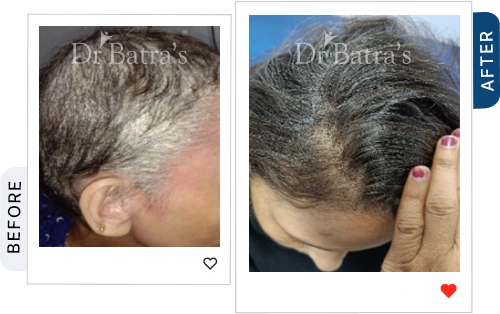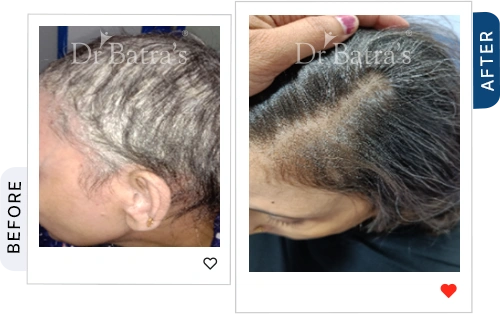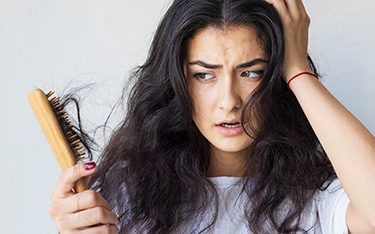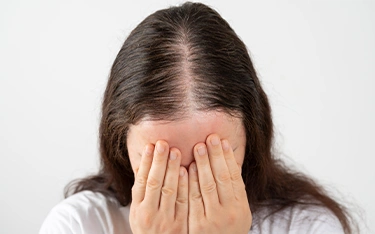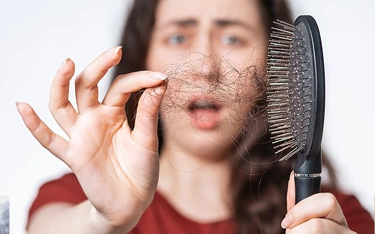FAQs
Scalp acne treatment includes using a gentle, medicated shampoo with salicylic acid or tea tree oil to cleanse excess oil and bacteria. Avoid heavy hair products, keep the scalp clean, and consult a dermatologist for persistent scalp acne.
Scalp acne usually heals within a few days to a couple of weeks, depending on its severity and treatment consistency. Regular scalp acne treatment, including medicated shampoos and proper scalp hygiene, can speed up recovery.
Prevent scalp acne by maintaining good scalp hygiene, washing hair regularly, and avoiding greasy hair products. A balanced diet, stress management, and an effective scalp acne treatment routine help keep breakouts at bay.
Home remedies for scalp acne include rinsing with diluted apple cider vinegar, applying aloe vera for soothing effects, and using tea tree oil for its antibacterial properties. Regular scalp care is essential for effective scalp acne treatment.
Reducing dairy, sugar, and processed foods can help prevent scalp acne. A diet rich in omega-3 fatty acids, fruits, and vegetables promotes a healthy scalp. Staying hydrated and maintaining a balanced diet supports effective scalp acne treatment.
Scalp acne is not contagious. It results from clogged hair follicles, excess oil, and bacteria. However, sharing hair tools without proper hygiene can spread bacteria, worsening scalp acne.
Popping scalp acne can cause infections, scarring, and inflammation. Instead, follow a proper scalp acne treatment plan, including medicated shampoos and home remedies, for safe healing.
Yes, an unhealthy diet high in dairy, sugar, and processed foods may trigger scalp acne. A nutrient-rich diet with antioxidants, healthy fats, and hydration can support effective scalp acne treatment.
Yes, tight hairstyles like ponytails or buns can trap sweat and oil, worsening scalp acne. Letting hair breathe and avoiding excessive hair products can aid scalp acne treatment.
